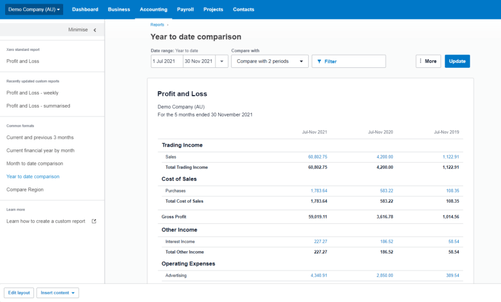Accounting is one of the most important aspects of running a successful small business. It’s essential to keeping accurate records and having a good view of your financial health. Knowing the basics of accounting can help any business owner stay on top of their finances, manage cash flow more effectively, and make sound decisions about where to allocate resources. Let's take a look at some of the fundamentals of accounting for small businesses.
The Basics of Bookkeeping
Bookkeeping is critical in order to keep track of income, expenses, and other financial transactions that occur over time. The process involves recording all financial transactions into a software program such as Xero. It’s important for small business owners to stay up-to-date with bookkeeping so they can have an accurate picture of their current financial situation. Want to know more about Xero? Contact us now to automate your business.
Accounting Reports & Financial Statements
In addition to tracking individual transactions, it’s also important to generate reports that provide an overview of the company’s overall financial situation. These reports are typically used by investors and lenders to assess whether or not they should provide funding for the company. Examples include balance sheets, income statements, cash flow statements, and statement of retained earnings. These documents are usually generated monthly or quarterly by a qualified accountant or bookkeeper who has experience with small businesses and is familiar with relevant tax laws. As a Chartered Accountant and Public Practice - we can help.
Taxes & Tax Planning
Taxes are one area where many small business owners struggle; it can be easy to forget about certain deductions or credits until it’s too late! That’s why it’s important for business owners to understand the basics of taxes and how they apply to their particular business structure (sole trader vs company). Staying up-to-date on changes in tax law can also be useful when planning ahead for future expenses or investments; this is known as “tax planning.” A qualified accountant will be able to provide advice on how best to utilise tax breaks in order to maximize profits each year.
Accounting is essential for any small business owner who wants accurate records and insight into their financial health—and there are plenty of resources available if you need help getting started! Understanding basic concepts such as bookkeeping, creating financial statements, and utilising tax breaks can help you manage your finances more effectively while ensuring compliance with relevant laws and regulations. With knowledge comes power—so don't hesitate to learn more about accounting today! We are here to help!







